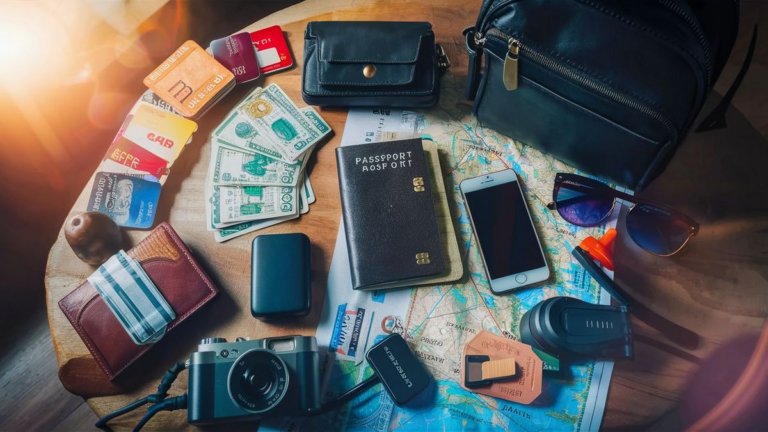Traveling abroad can be an exhilarating experience, but it also comes with its fair share of logistical considerations, especially when it comes to managing finances. One of the primary concerns for travelers is understanding which currency to use when making purchases with a credit card in a foreign country.
Understanding Currency Conversion
When you use your credit card in a foreign country, the transaction will typically involve a currency conversion. This process entails converting the local currency of the country you’re visiting into your home currency, usually at the prevailing exchange rate. It’s essential to comprehend how this conversion works to avoid unnecessary fees and charges.
Dynamic Currency Conversion (DCC)
Some merchants may offer you the option of Dynamic Currency Conversion (DCC) at the point of sale. This means that instead of being charged in the local currency, you have the choice to pay in your home currency. While this might seem convenient, it often comes with additional fees and less favorable exchange rates, potentially costing you more in the long run.
Local Currency is Often the Best Choice
In most cases, opting to pay in the local currency is the preferable choice. This ensures that you receive the most favorable exchange rate offered by your credit card provider, typically better than what merchants can offer through DCC. Additionally, paying in the local currency eliminates any uncertainty regarding exchange rates and potential hidden fees.
Benefits of Using Credit Cards Abroad
Using a credit card when traveling abroad offers numerous advantages, including convenience, security, and potential rewards. Most major credit cards are widely accepted worldwide, allowing you to make purchases and withdrawals with ease. Moreover, credit cards offer built-in fraud protection, reducing the risk associated with carrying large sums of cash.
Factors to Consider
When using your credit card abroad, several factors can impact your overall experience:
- Foreign Transaction Fees: Check whether your credit card issuer charges foreign transaction fees and what the percentage is.
- Exchange Rates: Research the prevailing exchange rates to understand how much you’ll be paying for purchases.
- Card Acceptance: While major credit cards like Visa and Mastercard are widely accepted, it’s essential to have a backup plan in case your primary card is not recognized.
Precautions to Take
To ensure a smooth financial experience while traveling abroad, consider taking the following precautions:
- Notify Your Bank: Inform your credit card issuer of your travel plans to prevent your card from being flagged for suspicious activity.
- Carry Backup Funds: While credit cards are convenient, it’s wise to have some cash on hand for emergencies or situations where cards may not be accepted.
- Monitor Transactions: Regularly check your credit card statements to detect any unauthorized charges promptly.
When using your credit card abroad, opting to pay in the local currency is generally the most cost-effective choice. Understanding how currency conversion works and being aware of potential fees and charges can help you make informed financial decisions while traveling. By taking necessary precautions and staying vigilant, you can enjoy the convenience and security that credit cards offer without breaking the bank.
ing Travel Rewards Credit Cards
Another aspect to consider when using credit cards abroad is leveraging travel rewards programs. Travel rewards credit cards often offer benefits such as airline miles, hotel points, or cashback on travel-related purchases. Utilizing these cards can help offset some of the costs associated with international travel.
Choosing the Right Travel Rewards Card
When selecting a travel rewards credit card, look for one that aligns with your travel preferences and spending habits. Consider factors such as annual fees, earning rates, redemption options, and any additional travel perks offered.
Maximizing Rewards
To maximize your rewards potential, use your travel rewards credit card for eligible purchases while abroad. This can include flights, hotels, dining, and other travel-related expenses. Additionally, be on the lookout for special promotions or bonus categories that may offer increased rewards for specific types of spending.
Frequently Asked Questions
Below are some common questions related to using credit cards abroad:
| Question | Answer |
|---|---|
| Are there any foreign transaction fees? | Check with your credit card issuer to see if foreign transaction fees apply and what the rates are. |
| What should I do if my credit card is lost or stolen while traveling? | Immediately report the loss or theft to your credit card issuer to prevent unauthorized charges. Most issuers offer 24/7 customer support for such situations. |
| Is it better to withdraw cash from ATMs or use my credit card for purchases? | It depends on your personal preferences and the fees associated with each option. Using a credit card for purchases may offer better exchange rates, while withdrawing cash from ATMs may incur additional fees. |
Managing Currency Exchange
When traveling to countries with multiple currencies or undergoing currency fluctuations, it’s essential to keep track of exchange rates and plan your purchases accordingly. Consider using currency conversion apps or consulting with local financial institutions for the most up-to-date information.
See also:






